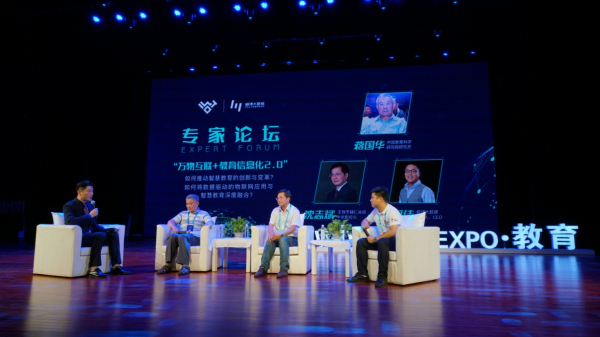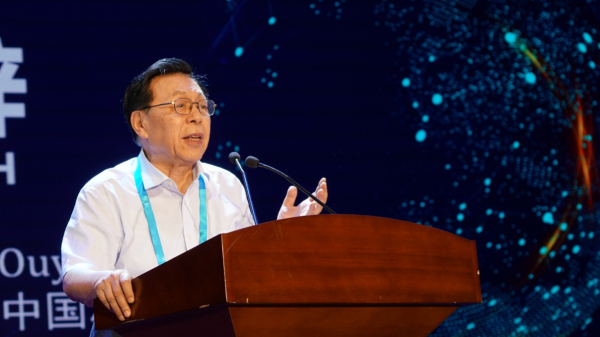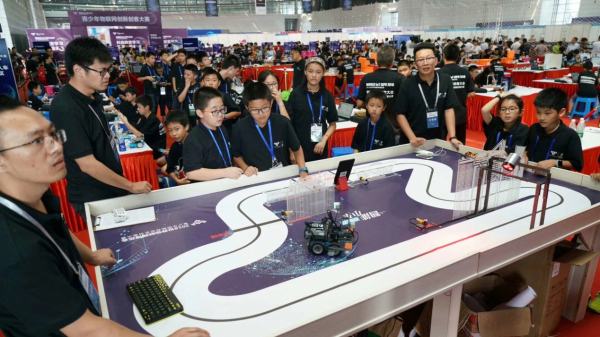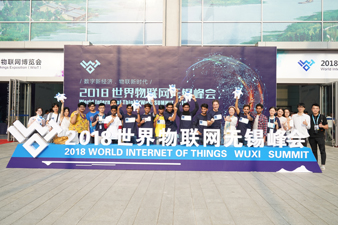Wuxi summit debates latest classroom technologies

Jiang Guohua (L), an NIES fellow, Shen Zhibin (M), vice-president of Wuxi Furen High School, and Li Kejia, founder and CEO of Fclassroom hold a panel discussion on the application of big data analysis into schools. [Photo provided to chinadaily.com.cn]
China's Ministry of Education published the Education Informatization 2.0 Action Plan in April, marking a new push to further reform the country's education system by utilizing advanced information technologies.
As part of moves to implement the government's action plan, Wuxi, in East China's Jiangsu province hosted the Smart Education Summit during the city's 2018 World Internet of Things Expo on Sept 16.
With a focus on how new technologies are transforming the classroom, the summit saw hundreds of education experts discuss how the student experience might be reshaped by artificial intelligence, virtual reality, mobile internet, and internet of things (IoT) technologies.
IoT, cloud computing, and mobile internet technologies are changing the way we deliver education, and Jiangsu province is currently developing a system of internet-linked smart information terminals in the province’s schools, said Hong Liu, deputy director of Jiangsu Provincial Department of Education, during an opening speech.
Wang Zhuzhu, director of the National Center for Educational Technology, paid tribute to Wuxi's early adoption of new technologies in the education sector.
"As the only National Sensor Network Innovation Demonstration Zone and one of China's earliest 'Smart Cities', Wuxi has been a pioneer in promoting smart education around the country," she said.
We have to turn "Education Informatization 2.0" from a concept, into a reality, she added.
Ouyang Ziyuan, academician of the Chinese Academy of Sciences and chief scientist of China's lunar probe project, spoke about utilizing virtual reality and big data technologies to promote science education in China.
VR labs make it possible for students from across the country to conduct scientific experiments that might be too expensive, too difficult, or even too dangerous for them; and big data technologies push forward "Precision Learning", which greatly raises the efficiency of teaching, said Ouyang.
Jiang Guohua, one of China's earliest researchers in the field of scientometrics and a fellow at the National Institute of Education Sciences, stressed the application of big data analysis and distance learning in education. Jiang spoke highly of Fclassroom, a Wuxi-based software company, for its "Precision Learning" service platform that has already benefitted more than 4.6 million students and 200,000 teachers across the country.
During the summit, Wuxi education administration and Chinese IT giant Tencent signed a cooperation agreement to allow enterprise-class WeChat software to be used in the city's primary and secondary schools. The agreement forms part of the city's efforts to promote educational informatization and promote effective communication between administrators, teachers, and students.
During the education summit, two parallel events were held at Taihu International Expo Center, including an IoT innovation contest for teenagers and a smart education exhibition featuring the latest hi-tech products from well-known companies, such as TAL Education and Fclassroom.

Ouyang Ziyuan, academician of the Chinese Academy of Sciences and chief scientist of China's lunar probe project, speaks about utilizing virtual reality and big data technologies to promote science education in China. [Photo provided to chinadaily.com.cn]

An IoT innovation contest for teenagers takes place at Taihu International Expo Center on Sept 15. [Photo provided to chinadaily.com.cn]

 Play
Play